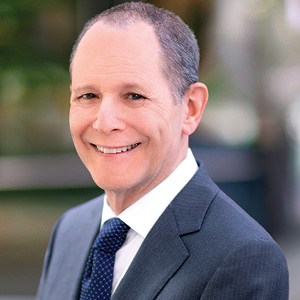Many “form” commercial contracts contain clauses mandating that any disputes that arise be resolved by binding arbitration rather than a jury or bench trial. Most trial courts, overwhelmed by a flood of cases, regularly enforce arbitration clauses—yet the decision to arbitrate and not litigate is a major business decision that should not be made lightly.
Many great lawyers, transactional and litigators alike, vehemently disagree on the merits of arbitration versus litigation, and this debate will surely continue for eons. When advising their clients, lawyers must know in advance what a party will likely get—and not get—by choosing to arbitrate or litigate a commercial contract dispute.
Problems with Courtroom Litigation
The primary reason many businesses—construction entities, say—prefer arbitration is their perception of the legal system’s defects. Few companies that have been through a lawsuit, even one resolved in its favor, would wish to endure it again. Why? Some common problems are inherent to litigation:
Cost. Litigation is time-consuming and expensive. More to the point, while 95% of civil cases settle before trial, settlement usually takes place on the courthouse steps after the parties have incurred most of their expenses. Out-of-pocket costs for attorneys, expert witnesses, multiple pretrial depositions, electronic-discovery consultants (those tasked with gathering every pertinent email) and other discovery expenses are considerable.
In most U.S. jurisdictions, unless the contract contains a provision for attorneys’ fees, such costs are not recoverable even by the victorious party. A company may “win” its case only to realize that after subtracting lawyer fees and other items, its bottom line is a net-zero “recovery.” Even when a party wins, it faces the question of whether the judgment is collectible. A judgment against a bankrupt or marginally solvent defendant might not be worth the paper on which it’s printed.
Litigation also produces substantial soft costs. Time is money. In any suit, management and other key employees must devote considerable time to the dispute; forced attention paid to a past job detracts from one’s focus on current jobs and new clients. It also affects the morale of any staffers who feel “tainted” by the whole process.
Publicity and public filings. Lawsuits can damage reputations and boost one’s competitors. Court filings are public records. Even if frivolous, the mere filing of a lawsuit may make the front page of the local news or be featured in a trade journal, a prominent email chain or an industry blog—whereas the successful defense or dismissal of the claim, sometimes years later, might not get reported at all.
Court filings and trial testimony, meanwhile, are open to any competitor. In a case involving a claim for lost profits, for instance, the business making the claim may be required to open its tax records to prevail. The parties can agree on protective orders, but even if they do, once such documents are produced, they’re out there for any interested outside party to discover.
Time. Lawsuits can take years just to get to trial. After which, of course, the losing party has an automatic right to appeal . . . which might consume years more (and will be expensive). The right to appeal an adverse ruling is a point in favor of litigation—and that right, while time-consuming, can make litigation more predictable. Any smart lawyer who wants to can make the other side wait a long time before paying—which, counterintuitively, may be exactly what your adversary wanted. An otherwise solvent defendant might be able to delay a final hearing for frivolous reasons, and by the time judgment is rendered, that company’s assets are gone or it has filed for bankruptcy.
Unpredictable results. In any court case, there is no way to guarantee what an elected judge (yes, the phenomenon of “home cooking” does exist) or the jury might do. If the case involves complicated facts, expert testimony or industry-specific issues, it’s quite possible that the jury—or even the judge—will get confused and fail to focus on the topics of primary importance, leading to an unfair, inexplicable result. When a company places a substantial legal dispute (somewhat ominously known as a “bet the business case”) solely in the hands of a judge or jury, it’s essentially gambling.
Pros and Cons of Binding Arbitration
Predictability. Ideally, arbitration is heard by a neutral third party, generally a lawyer, with knowledge of and experience in the specific area of dispute—a construction lawyer, say. Arbitrators do not have to be lawyers but can be (for example) engineers, bankers or developers trained in arbitration. This can eliminate the substantial problems and time required to educate a judge or jury about the nuances of a dispute. Properly selected arbitrators understand and focus on the key material issues and are not easily swayed by lawyers’ emotional arguments or “expert” witnesses.
Because arbitrators are paid, they tend to pay closer attention to the proceedings and are likelier to care more about reaching the right outcome. Arbitration is also less formal; the official rules of evidence and procedure might not be strictly followed, ensuring that the focus can be on the facts and testimony.
Time. Because there’s no crowded court docket competing for attention, arbitration hearings can often be scheduled within months, not years. Even when millions of dollars are at stake, hearings can commence more quickly than in court, where criminal trials take priority over civil ones, especially in federal court. In general, one day of an arbitration hearing equals two or three days of trial. Grounds for appealing an arbitration award are also circumscribed, so finality is the rule rather than the exception.
While 95% of civil cases settle before trial, settlement usually takes place on the courthouse steps after the parties have incurred most of their expenses."
Costs. Arbitration is less expensive than litigation, which is often criticized for the time and expense of pretrial discovery. As such, it’s significant that with a few exceptions, arbitration limits discovery. The lack of multiple pre-hearing motions and limited pre-hearing depositions, as well as the finality of the award, substantially reduce attorneys’ fees and overall costs.
One caveat: Unlike in court, the parties must pay for arbitration. There are initial filing fees based on the amount of the claim, and arbitrators typically charge hourly rates that must be paid in full prior to any hearing. This adds up: Do the math on $500 an hour for three arbitrators over 10 days of hearings. However, the cost of prolonged personal involvement by key company employees can accordingly be minimized.
Privacy. Unlike courtroom litigation, arbitration is private and confidential. The proceedings are not public records; arbitrators maintain the privacy of the hearings unless some statute mandates to the contrary.
Conclusion
Arbitration is not a panacea, nor it is always the right choice. All its pros come paired with a con. If a loss in a dispute might put the business under, sticking to litigation (with the right to conduct full-blown discovery and the right to appeal) may be the better choice.
An arbitration clause—there are plenty of in-depth articles about how best to draft one—is, after all, a contract clause that can reflect the specifics of the deal and lay out how, should a dispute arise, the arbitration will be conducted. Any commercial contract must discuss and analyze the many pros and cons of including an arbitration clause.
Even absent such a clause, after a dispute emerges, the parties should not blindly charge into litigation but rather discuss the possibility of arbitration. The bottom line: If the dispute can be resolved through arbitration or some other means of resolution (including nonbinding mediation), any company can be assured of proceedings that will, in many instances, be faster, more predictable, confidential and less expensive than a trip to court.
David K. Taylor is a partner at Bradley Arant Boult Cummings LLP and chairs the firm’s construction group in the Nashville office. David has a national construction practice representing all participants in the construction industry and is recognized as one of the leading construction lawyers in Tennessee and the Southeast. David also has a national "neutrals" practice and has been chosen more than 400 times by lawyers to help them either settle their clients’ disputes through mediation or to render binding decisions as an arbitrator. Serving as an arbitrator and a national trainer for the American Arbitration Association, David can better evaluate and advise his clients when disputes are arbitrated. He dedicates a substantial amount of time every year to educating the construction, business and legal communities on dispute avoidance.






























